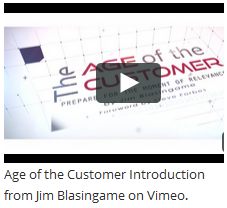Social media platforms have rocked the online world in just a few frenzied years by introducing new community building possibilities for people and customer connection opportunities for business.
These are heady times for social media visionaries who have created a wave of viral excitement. This is the realm of entrepreneurs who worship at the throne of possibilities, where mistakes successfully identify what doesn’t work and fun is a best practice.
Now, like Gates and Jobs before them, social media entrepreneurs are following the path of past high-growth enterprises by hitching their wagons to Wall Street’s star through an initial public offering (IPO) of stock. But in doing so, companies like Facebook enter the world of very sharp pencils.
This is the realm of fish-eyed bankers and fickle fund managers who worship at the throne of results. They demand fealty, and an audience every 90 days to explain why actual operating numbers from the real marketplace missed – by one cent – what green-eye-shade analysts had divined with their theoretical financial models. And faster than you can “Like” a photo on Facebook, it becomes clear that mistakes in this realm come at a high cost, possibilities are not possible and fun isn’t in the budget.
Unlike Microsoft and Apple, which actually create products customers pay for, social media patrons aren’t paying customers, but users. And the only thing more fickle than a fund manager is an Internet user, which is why so many jaundiced eyes are being cast on social media IPOs.
We wanted to know what our small business audience thought about Facebook’s impending IPO, so we asked: “As Facebook makes plans to go public, do you think its stock will be a good investment?” Here’s what you told us.
On one end, less than one-in-ten of respondents said, “Facebook stock will do well short and long-term,” while at the other end, 16% believe, “Like other social media stocks, Facebook stock will be a loser.” The big group in the middle, 75%, allowed that “Facebook stock may do well for a year or so, but not long-term.”
Such skepticism isn’t about social media activity itself. Because what individuals and businesses are really doing on these platforms is creating communities, and online communities are here to stay.
But small business owners, like Wall Street, know there’s a difference in projecting the value of a customer and that of a user. One pays you money and the other pays you a visit.
Monetizing a user is not the same as monetizing a customer.





